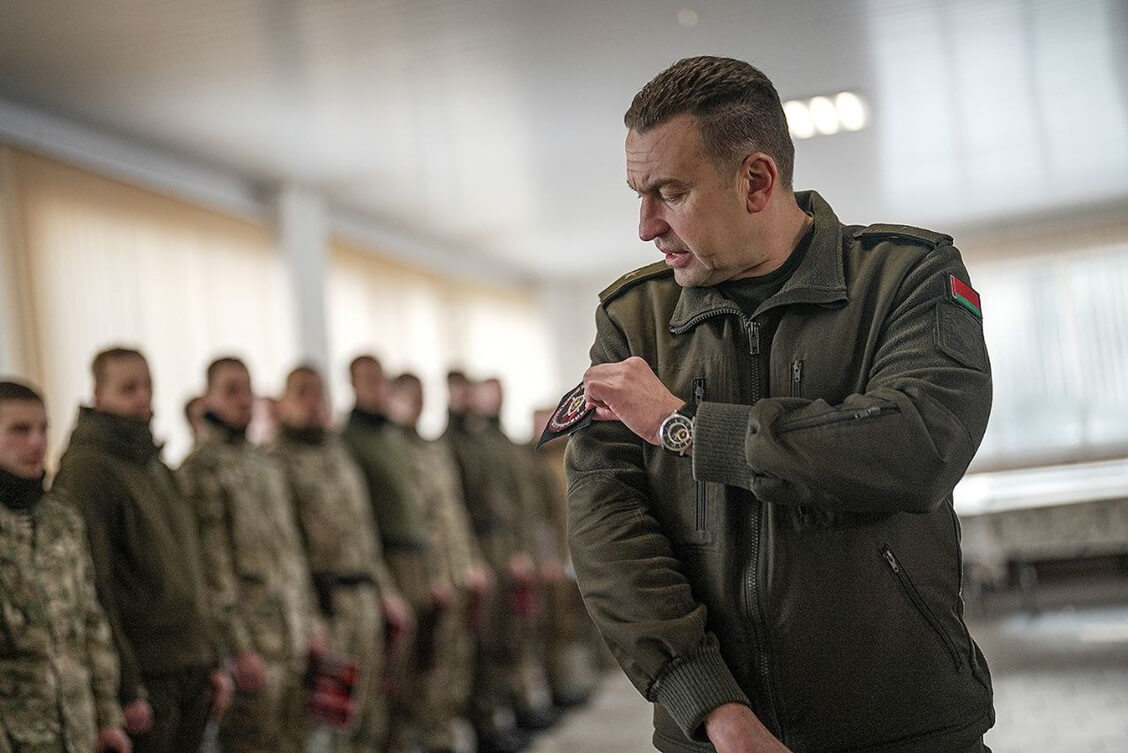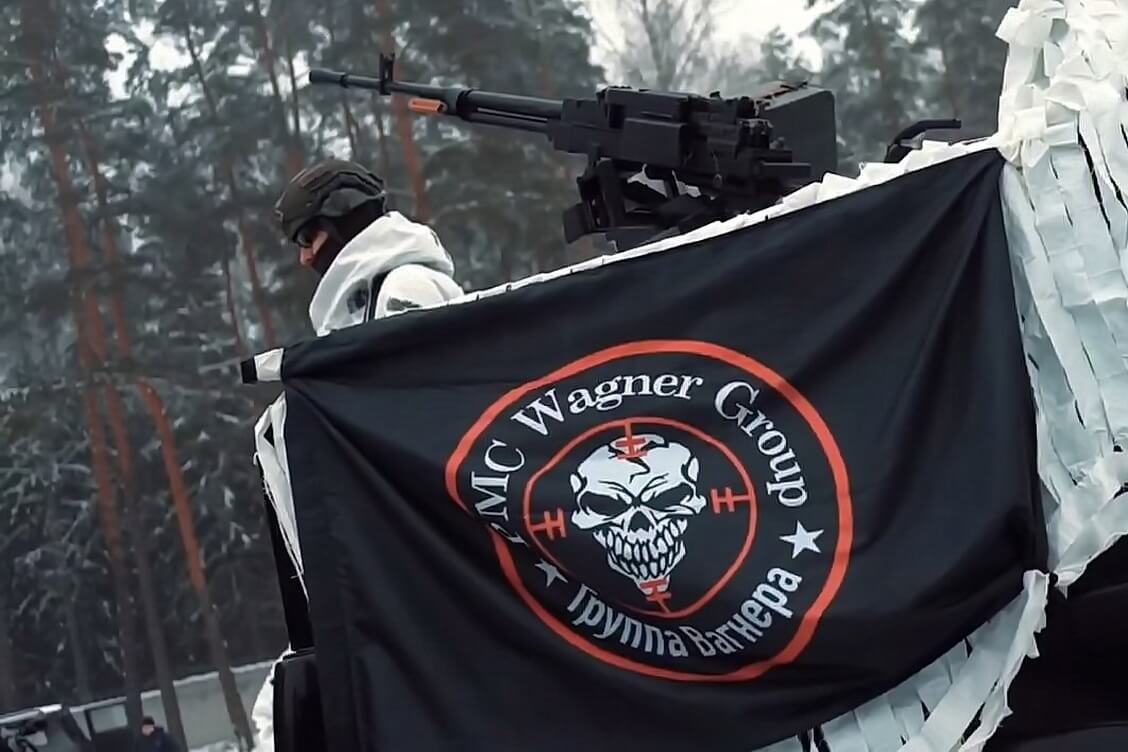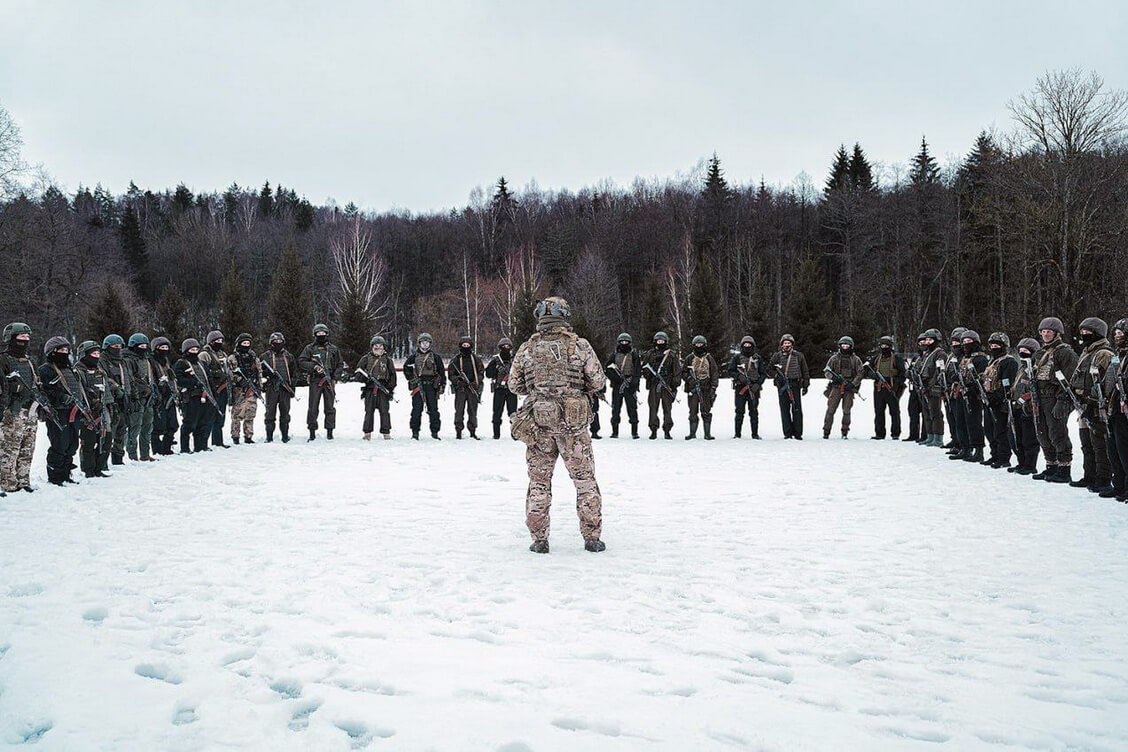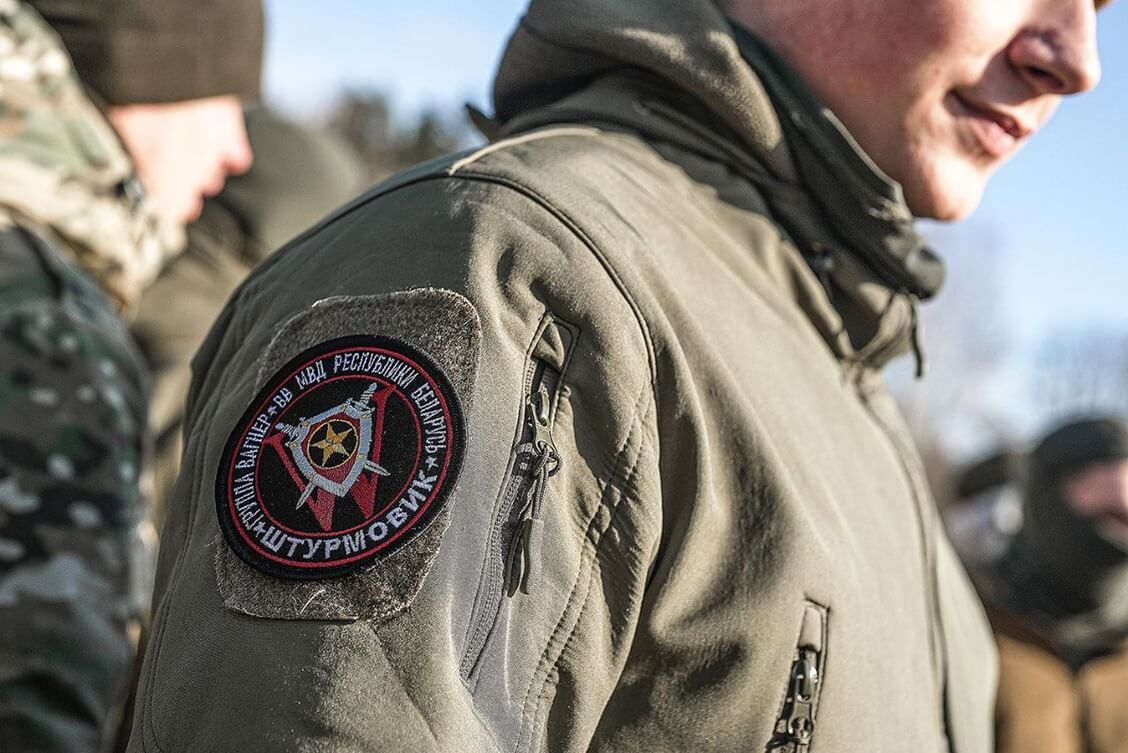In the run-up to the local and parliamentary elections, Mikałaj Karpiankoŭ, commander of the Internal Troops, warned Belarusians that Wagner mercenaries can be called in to quell unrest.

Observers are convinced that no protests will take place during the February 20-25 elections conducted in the atmosphere of chilling political terror.
In 2020, Belarusians took to the street to protest vote rigging in the presidential election, but now they hardly have a motive. There are only loyalists on the ballots, while the opposition is completely out of the game. The voters have no real choice.
Alaksandar Łukašenka, traumatized by the 2020 protests, wants to play it safe this time.
Security forces will be “especially vigilant,” Karpiankoŭ said in a televised interview earlier this month. “We are preparing for possible provocations. We have instructors and advisers from Wagner PMC with us. If anything happens, they are ready to get involved . . . and provide assistance.”
Wagner mercenaries training internal troops
Wagner PMC has been out of the limelight after the death of Yevgeny Prigozhin.
While loose talk from Łukašenka about using Wagner has dried down a little recently, Karpiankoŭ continues to promote the mercenaries. So does propagandist Ryhor Azaronak.
Last summer, about 8,000 Wagner fighters arrived in a camp near the village of Cel, Asipovičy district, after a failed mutiny in Russia. No more than a thousand remain in Belarus, according to UK intelligence. The Biełaruski Hajun monitoring group recently estimated the number at several hundred.
In December, Russian propagandist Konstantin Pridybailo said on X that some mercenaries had joined special-purpose Unit 3310 of the Belarusian Internal Troops.

Valer Sachaščyk, an opposition security chief, claimed that several dozen mercenaries received Belarusian passports with changed names and birth dates and signed contracts with the Internal Troops. If so, these are obviously the fighters Karpiankoŭ was referring to.
He said that Wagner PMC instructors had trained about 1,600 internal troops in seven months. Earlier, he said that he had organized 10 special-purpose units over the past year.

Last summer, defending his decision to shelter Wagner rebels in Belarus, Łukašenka said that their experience would be very useful for Belarusian soldiers. Indeed, they were involved in training soldiers for a while, but no reports to that effect have has been coming in for months. However, Wagner instructors have been actively involved in training of internal troops, which are responsible for safeguarding highly-important facilities, large-scale crowd control and prison security.
The government sees the elections as a special military operation, so the experience of Prigozhin’s men comes in handy.
Russian clout
Karpiankoŭ clearly admires the Russian world, Wagner fighters, their methods and “sledgehammer philosophy.”
After a 2020 opposition march, when crowds dispersed, Karpiankoŭ, then chief of the Main Directorate for Combating Organized and Cyber Crime, smashed a cafeteria glass door to pieces to arrest an unarmed protester hiding inside. He did it with a rubber baton, not with a sledgehammer.
Some say that the general has political ambitions and even call him the Prigozhin of Belarus. Others say the Kremlin can use him as a weapon against Łukašenka.
“Relations between [Interior Minister] Ivan Kubrakoŭ and his deputy Karpiankoŭ have become rancid,” Naša Niva reported earlier this month citing a police source. “Karpiankoŭ is looking to take the internal troops out of the interior ministry’s control and organize a separate force like [Russia’s] Rosgvardia.”
The interior troops commander was quick to deny what he called rumors about tension with the interior minister, praising his boss in an interview with Azaronak.
Unlike Prigozhin, a soldier of fortune and a business empire owner, Karpiankoŭ is hardwired into the Belarusian power hierarchy.
Of course, we do not know what his plans are, but it is obvious that if Łukašenka had no trust in him, he would have been out of the game long ago. So far, the Belarusian ruler seems to be satisfied with his services.
However, if Łukašenka weakens the Kremlin will definitely try to quickly play its game in Belarus. And for sure, it has already selected suitable players for the purpose.
The Russian world, in its most aggressive and brutal form, has many admirers among the Belarusian law-enforcers. The commander handed chevrons with the Wagner PMC logo to Belarusian interior troops who completed a tactical course taught by Wagner instructors.

Last year, the commander arranged a meeting of Wagner mercenaries with children from the Belarusian military-patriotic club “Ryś.” “This is not Mary Poppins. Our children choose the right toys and the right teachers,” propagandist Ksienija Lebiedzieva commented, reporting from the event.
Never enough of fear
The regime’s security forces have prepared for the February 20-25 elections as if for a major battle. Police and vigilantes are standing guard at polling stations. Alarm buttons and video surveillance systems have been installed, and rapid response teams are on high alert.
One general boasted that troops were on standby to repel enemy attacks during the election cycle, threatening to shoot down civilian airplanes. However, it is not clear which planes – no aircrafts from “unfriendly” countries fly over Belarus anyway due to sanctions.
Local and parliamentary elections have never been exciting in Belarus, even in the most liberal times, simply because the parliament has no say. It just rubberstamps bills submitted by the government.
Officials fear plots by foreign enemies, such as NATO and the exiled opposition, whereas NATO countries are afraid of Russia’s attack, and the opposition has desperately failed to stage an alternative election.
There will be no war at these elections, just because the enemy will not show up. It makes no sense for troops to waste their gunpowder shooting at a virtual progressive candidate.
Officials have justified doubts that brutal reprisals have made people love them, so they are set to intimidate the Belarusians even more, just in case. Wagner PMC, with its bad reputation, is just what they need.
Łukašenka rams into the heads of officials and law enforcers that they should prepare for the 2025 presidential vote. Surely, he must be satisfied with Karpiankoŭ’s zeal.